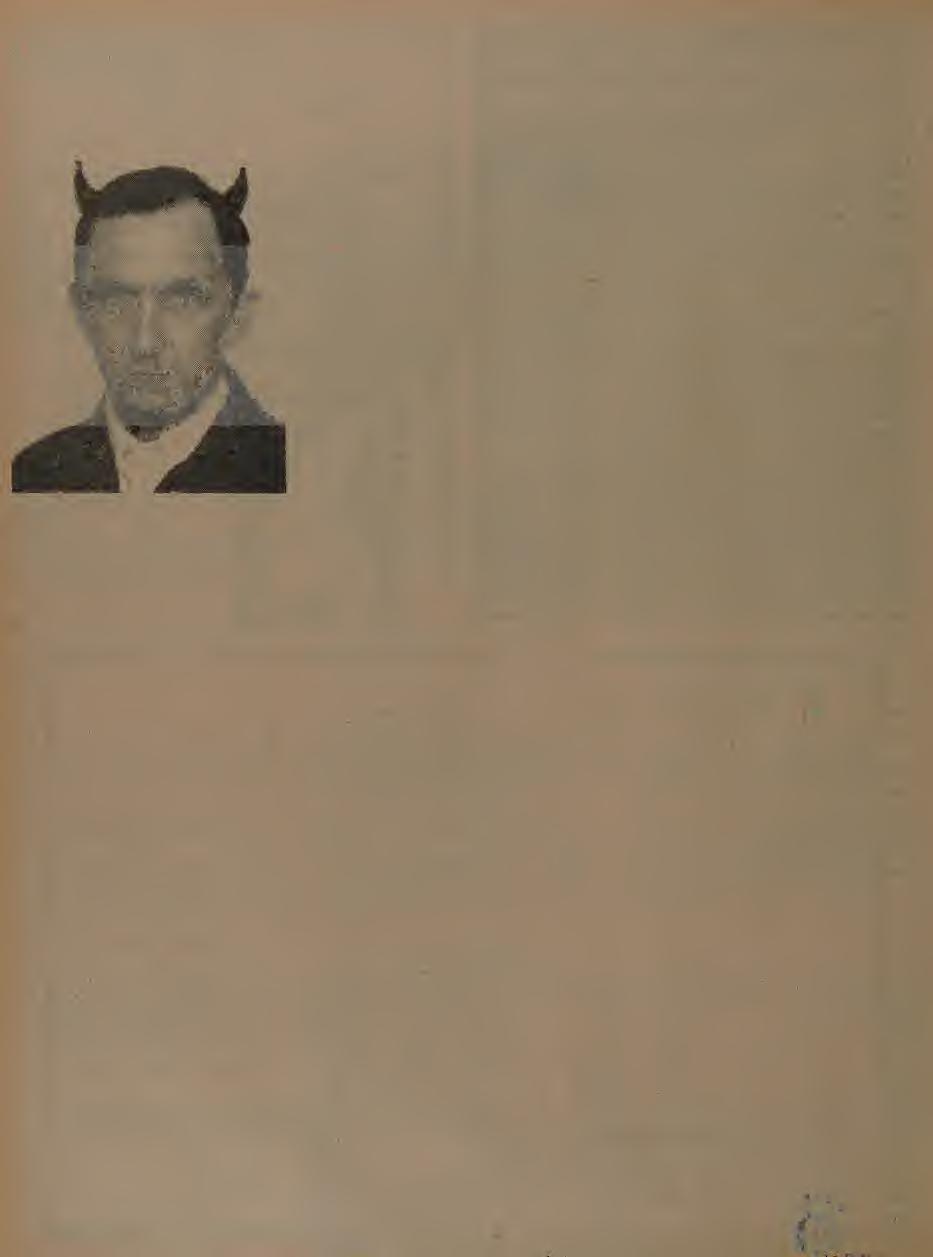
5 minute read
urbancyzk
The great Urbanczyk.

Advertisement
l
Everybody know Russian Roulette, very social and enjoyable game. This amazing toy was invented in old time Russia in Tsars period when tired and frustrated military persons, wasting their lives at the peripheries of the endless imperium, desperately wanted a little bit of excitement.
Today it’s all different. Last time in Russia, visiting famous Sochi (fantastic Black Sea beaches,) I asked about old game, sure to hear some interesting stories. “Niet, niet” said sexy Dhnya, my companion and guide, sitting on the gold sand shore and 'drinking “Sovietskoe Schampeinskoye” (“Lemonade first class.) “Niet, niet” said Dunya “niet Russian Roulette. We citizens in socialist country do not accept gambling, so you can’t play roulette here.”
As you can see, Dunya even doesn’t know what Russian Roulette means. Such times . . . “Russian Roulette” said somebody, “is sensible game, but only when played with 3 bullets.” Is it not cute friends?
Unfortunately, we sailors are also playing Russian Roulette. Yes, I am thinking about sailing in fog, the fog which is almost permanent in this area. The fog so dense that it can be cut with knife. The fog so famous that it is cann¬ ed and sent all over the world.
All “Pilots” and “Sailing Instructions” give warning about California fog. For example, one of our most favorite books, “Ocean Passages for the World” (Second Edition 1950, London) on
The Pacific view from Montara Point. page 312 says:
“Clear the coast as soon as possible. Especial from June to December to sail out from possibility of dense, danger¬ ous, fog very often in this area.”
Or , “Clear the coast as soon as possi¬ ble. From June to December.” Nice . . .
Ships have radar, but radar is not a miracle device able to solve every navigation problem. In his worldfamous book “An Agony of Collisions,” Peter Padfield, merchant Navy officer who spent his life at the sea, gives a sim¬ ple proof that nothing is more careless than conviction that a radar equipped ship is safe during limited visibility.
Believe it or not but in last year — regardless of radar, Loran, Decca, echo-sounds, etc. etc. — according to Lloyd report, 129 ships sunk, 112 were destroyed, 57 burned, 30 damaged heavily. Total lost — 334 ships! How many boats and how many sailors were lost? Nobody know. Who, except families, is counting them?
What do we do to avoid collision in¬ fog? Mostly we blow the horn — know¬ ing very good that the ship can’t hear us. We hang radar reflectors, knowing it can’t help too'much. We pray . . .
I think that the best way to discuss radar reflector is to discuss with mer¬ chant Navy captains as I did. Talking with at least 10 captains of big ships, 50.000 DWT average, I was informed what we can put together as the follow¬ ing statement:
Right.

“Sailboat is close to be invisible, despite metal parts, even aluminum mast, on the radar screen of a big ship. Good radar reflector properly mounted changes situation only a little bit. Possibility of collision between yacht and ship in fog is very big and ships can do nothing to avoid such accidents.”

Sounds like nightmare or death sentence. But we are sailing! And we will. In such situation most important is to remember that we are playing Rus¬ sian Roulette and the gun is loaded. If we know that we are close to invisible to big ships, that maneuverability of super¬ tanker is small, that nobody can hear our tiny horns, then we have chances to survive.
Many years ago I was sailing on big ketch through La Manche Channel and the fog was cotton dense and traffic heavy. Sirens, horns, gongs around and around.
Standing at the bow of ketch, I was simply afraid that one of numerous ships would chop us like cottage cheese. Then one sound, from this devil orchestra, became stronger and stronger. Biiiiiii, Biiiiiii, Biiiii — crow my tiny horn. Biiiiiii, Biiiiiii, Biiiii: — mean¬ ing sailboat sailing with wind.
Wrong. (Sloppy.)
But the enemy still came closer and closer. In enormous psychological pressure, the horn continued it crow: Biiiiiii, Biiiiiii, Biiiiiiii ....
Thank gods, we had good captain. “Hell with regulations! Make as much noise as possible” he roared. And we did. In a second, we generated thou¬ sand decibels using frying pans, bell, pistol with all flares, engine, buckets and our throats. The invisible monster pass¬ ed within couple yards and we survived. We survived because of captain’s deci¬ sion, not because of* International Regulations. And from this, we can take lot of conclusions. ,
Fog is not something from books about meteorology with baro readings, Fahrenheit degrees, dew points, humid¬ ity and moisture etc. etc. Fog is not a matter of academic discussion about right of way. Fog, for us sailors, is a matter of life and death.
Eric Taberly, who won all possible races including Singlehanded TransPacific (40 days from San Francisco to Tokyo) and OSTAR in 1964, said in fascinating book “De Pen Duick en Pen Duick” (Arthaud, Paris 1970) that he does not believe too much in radar reflectors, in aluminum masts reflecting on radar screens. He believes in escape.
So coming to the end: If we must sail and play Russian Roulette with fog, it is our obligation to do what is possible to remove as many bullets from barrel as we can.
We must see clearly that ships do not see us. That they are busy and are runn¬ ing as fast as they can to make their pro¬ fit, not caring too much about Interna¬ tional Regulations. We must have and carry properly radar reflector, and we must know that it is not enough to avoid collision. We must obey regulations but understand that this is not enough, that the safest way is to stay away from ships as far as possible, regardless that sailboat in most cases has right of way . . .
We must. Because, if not, if we shall forget and abandon necessary precau¬ tions — then, no discussion, we are go¬ ing to play the most dangerous of crazy games — Russian Roulette — with six bullets!
— andrew urbanczyk








